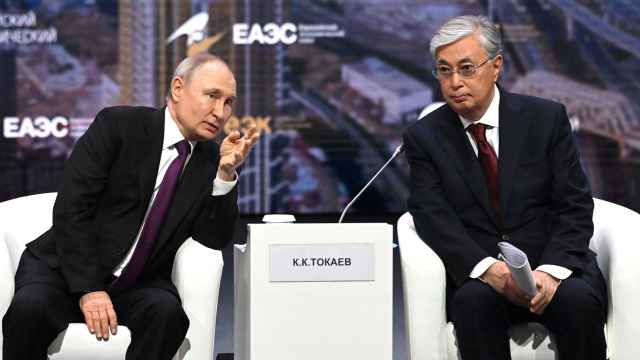Car rental company Hertz is exiting the Russian market, more than twenty years after it first came to the country.
Hertz's website no longer lists Russia as a rental location and telephone calls to its Russian branch went unanswered on Thursday.
“Richmont transport services,” Hertz's franchise in Russia, filed for bankruptcy in mid-August, the RBC outlet reported on Wednesday. A spokesperson for Moscow’s Domodedovo Airport told RBC Hertz was no longer operational there.
In written comments to the Moscow Times, Hertz confirmed it was no longer operating in Russia, but said it would "honor all existing car rental reservations through a local firm."
"Hertz is currently in discussions with potential partners for long term representation in the country," it added.
Hertz’s failure in Russia is the result of rising prices, strict rental conditions and the emergence of car sharing services, RBC cited an analyst for the “Alor Broker” company, Kirill Yakovenko, as saying.
“Meanwhile, Hertz has had competition from mobile taxi service apps, which have made car rental services unprofitable,” he said, adding Hertz’s profits in 2016 amounted to 43,000 rubles ($720).
Hertz first came to Russia in 1996, setting up shop in 16 Russian cities, including Moscow, St. Petersburg, Yekaterinburg and Ufa as well as an office in Crimea’s Simferopol, according to the company’s website.
A Message from The Moscow Times:
Dear readers,
We are facing unprecedented challenges. Russia's Prosecutor General's Office has designated The Moscow Times as an "undesirable" organization, criminalizing our work and putting our staff at risk of prosecution. This follows our earlier unjust labeling as a "foreign agent."
These actions are direct attempts to silence independent journalism in Russia. The authorities claim our work "discredits the decisions of the Russian leadership." We see things differently: we strive to provide accurate, unbiased reporting on Russia.
We, the journalists of The Moscow Times, refuse to be silenced. But to continue our work, we need your help.
Your support, no matter how small, makes a world of difference. If you can, please support us monthly starting from just $2. It's quick to set up, and every contribution makes a significant impact.
By supporting The Moscow Times, you're defending open, independent journalism in the face of repression. Thank you for standing with us.
Remind me later.






